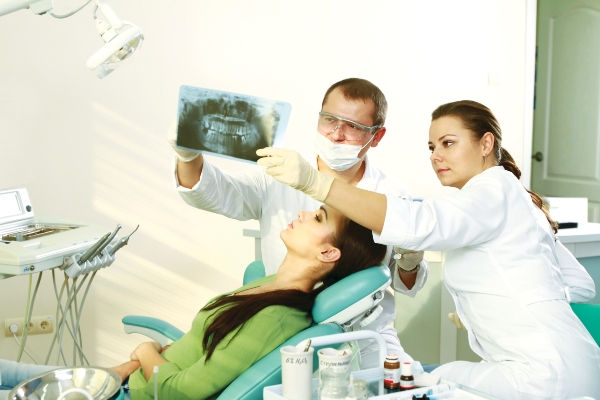 Dental restorations can improve overall health by decreasing the chances of infection, decay, and issues caused by broken or misaligned teeth. These treatments range from removing teeth, replacing tooth structures that have decayed, and correcting the patient’s overall bite to improving eating and drinking.
Dental restorations can improve overall health by decreasing the chances of infection, decay, and issues caused by broken or misaligned teeth. These treatments range from removing teeth, replacing tooth structures that have decayed, and correcting the patient’s overall bite to improving eating and drinking.
A restoration may be performed for cosmetic or health-related reasons, but even patients who opt for cosmetic restorations are likely to see benefits in oral health. Patients who delay restoring teeth due to the assumption that restoration is a purely cosmetic procedure should reconsider. A dental restoration performed by an experienced dentist can affect both physical and emotional health.
Cosmetic vs. health-related dental restorations
Patients who are familiar with makeover TV shows have likely seen another person undergo a cosmetic dental restoration. These simple procedures typically focus on brightening teeth and improving small misalignments and imperfections in the smile. Unfortunately, while emotional health and self-esteem can be greatly improved with a cosmetic restoration, many of these procedures do not focus on the patient’s oral health.
Patients may choose dental restorations for health-related reasons when suffering from gum disease, an accident that results in a broken tooth, or severe tooth decay that necessitates a full-mouth restoration instead of a few fillings. After speaking with the dentist about which replacements or restorations may be necessary to improve oral health, these individuals can make additional appointments to undergo the following treatments:
- Fillings: Most patients are familiar with fillings for minor cavities. Fillings are usually composed of silver, gold, or composite resin material.
- Crowns or implants: These restorations are used when a simple filling does not fix the problem. Crowns are caps that fit over teeth (usually molars), while implants are artificial tooth replacements anchored by a titanium post.
- Bridges or dentures: Bridges are also known as “partial” dentures that help fill a gap in the patient’s teeth. Dentures can replace all or some teeth and are often removable, while bridges are fixed or unable to be taken out of the patient’s mouth.
How dental restorations can improve overall and systemic health
Choosing to ignore a cavity or put off a crown until the next appointment can be tempting, but it is rarely a good idea. According to the American Dental Association, filling cavities and undergoing regular cleanings can reduce the chance of more serious oral diseases, including periodontitis and gingivitis. In addition, excessive plaque has also been implicated as a risk factor for heart disease.
Dental restoration can be as simple as filling any outstanding cavities a patient has been ignoring, or it can address issues with chewing, speaking, and jaw pain that may be caused by missing or misaligned teeth. It is crucial to investigate these issues with a dentist to determine the proper course of action.
Conclusion
Patients who need dental restorations should speak with a qualified dentist about choosing the correct treatments. Restorations may help these patients chew food better, speak with clearer articulation, and boost mental health due to the improved appearance of their smiles.
Request an appointment or call Frankford Dental Care at 215-302-1746 for an appointment in our Philadelphia office.
Recent Posts
A broken tooth can be a stressful and uncomfortable experience, requiring prompt attention to prevent further damage or complications. Whether caused by an accident, biting into something hard, or untreated decay, addressing a broken tooth quickly is crucial to maintaining oral health. Understanding the steps to take after experiencing a broken tooth can help preserve…
A broken tooth is a common dental issue that fills most people with dread, especially when the crack is near the front of the mouth. Front teeth fractures are quite common among children, teenagers, and young adults. Fortunately, a dentist can recommend various repair or replacement options for damaged front teeth to help patients resume…
Dental restorations have been used for thousands of years. In fact, a 2012 article published by The New York Times details the discovery of a 6,500-year-old human jawbone. Considered the earliest evidence of dental fillings, it had beeswax in one tooth, which researchers believe was to ease the pain of a crack. These days, restorations…


